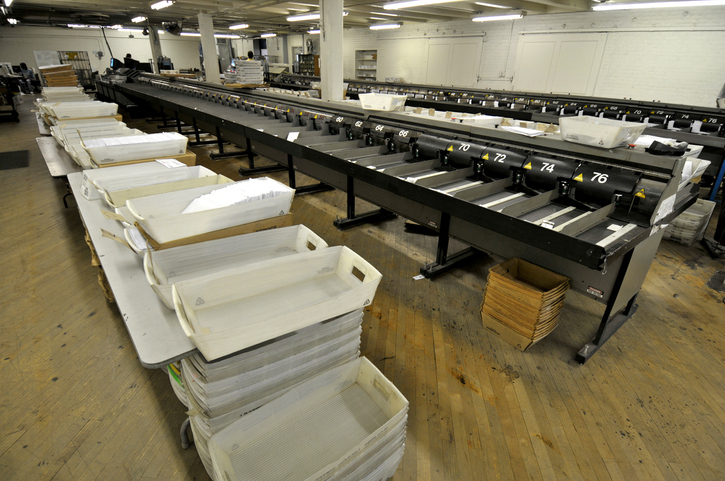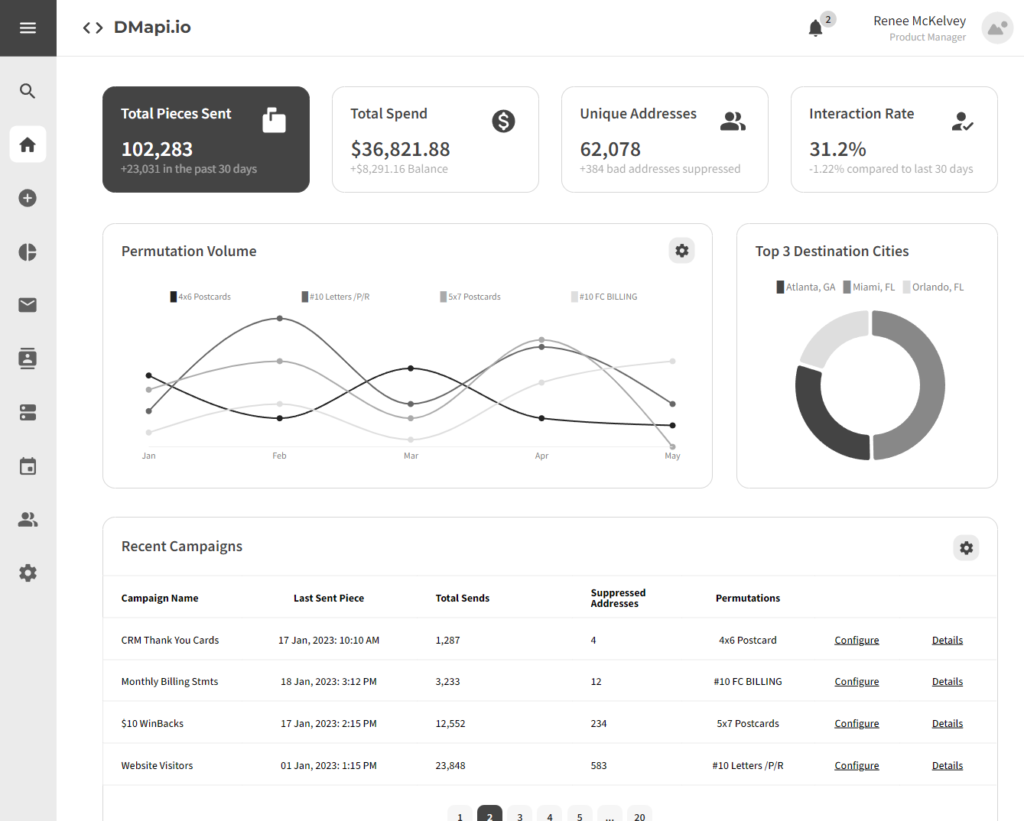Our Solutions
Solutions Spanning from Transactional & Marketing Mail, Catalog Premedia, Embellished Print, Digital Payments and Web Support Services & much more.
We are more than a vendor, we are your solution.

Marketing & Transactional Mail.
From 3.5" x 5" to 6" x 11" postcards, to full kitted packaged letters and flats, we can support your business needs. We offer a complete line of fully secure, transactional mail services.

Postal Optimization.
Smart Entry Services ranging from simple commingle to complete COPAL services are available with one goal in mind; save on postage and increase your bottom line. Our expert postal solution architects aim by reducing the cost of mailing, improving the efficiency of the mailing process, and increasing the effectiveness of your mail campaign.

List & Data Services.
We can provide highly-targeted mailing lists for your campaigns. These lists include consumer, occupant, and business data. Our consumer data features Audience Targeting which are selects designed to predict consumer behavior as well as product and brand affinities.

Programmatic Mail.
With DMAPI (Direct Mail API), you can integrate your entire mail and print production strategy, in as little as 2 days. The DMAPI enables you to seamlessly integrate CRMs and marketing channels allowing you to send triggered campaigns whether it be 1 piece or 10 million.
Compatible with all the right frameworks.

Everest Direct is SOC 2 TYPE II, HIPAA Certified (BA) with an on-site dedicated privacy officer (DPO) offering world class security. In addition to being PCI DSS and GDPR Compliant, Everest also continues cycled ISO 27001 to assure our security standards remain relevant and up to date. Rest easy as we have taken a security-first approach to your data and our secure facilities.
Why Partner With Us?
G7 Color Management
All our devices share the same G7 Gray Balance, along with daily QC scans using 3rd party software such as Chromachecker.
Cutting Edge Software & Hardware.
Not only do we have a talented staff of developers to assist your needs, we have invested over $20MM in the latest print technology in the past year alone.
We speak mail.
Since 2014, Everest Direct eats, sleeps and speaks mail. We are one of the country's foremost experts in all things mail.
Sustainability.
While mail can be considered waste, our ability to source sustainable paper helps the environment as well as the economy. We take a holistic approach to acquiring low-energy consuming equipment.
Our Stats are top of class

Track all your spend in one easy to use place.
Create Campaigns on the Fly
Advanced Real-Time Analytics
Build physical mail templates
on our many types of permutations
and send immediately.
Upload and Scrub
your Mail File Automatically.
Don't waste another
penny on mail that will only be returned.
Purchase Mailing Lists,
Build Custom Creative and many other premium
services are offered on the fly.
Schedule and Cancel Campaigns.
Add unlimited users to manage your mail.
Create API Keys, Payments and More 24/7.
Real-Time Suppression of Addresses.
Edit and Reconfigure Campaigns on the fly.
Build tracking URLs and PURLs,
with QR codes and variable
tracking data and track interactions.
Real-Time Webhooks and
notifications to allow you to
do anything you'd ever want
with the data.
DMapi.io is the wave of the future & we own it.
Direct Mail API, or DMAPI as we call it, is where your mail becomes smart. Seamlessly integrate with any resource to send letters, postcards, self-mailers, and catalogs. DMAPI provides advanced analytics and access to state of the art image enhancement to make lasting impacts.
Client Testimonials
Trusted By
Leading companies trust Everest Direct to handle their mail & print.




